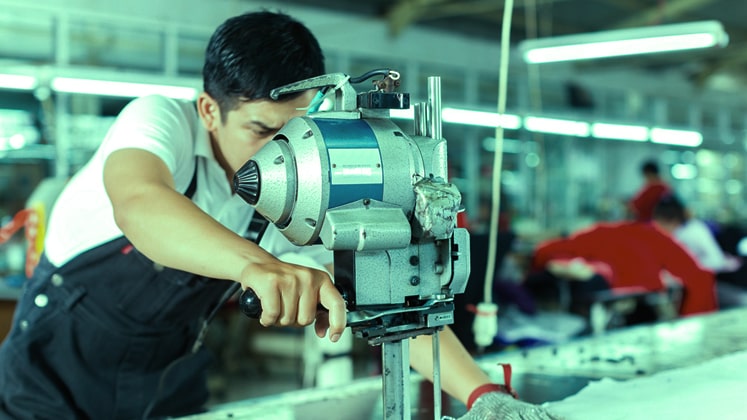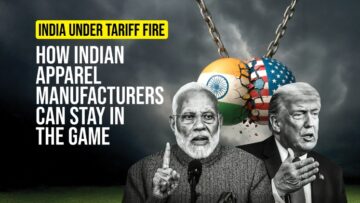The Cabinet Committee on Economic Affairs (CCEA), chaired by Prime Minister Narendra Modi, has approved the introduction of Amended Technology Upgradation Fund Scheme (ATUFS) in place of the existing Revised Restructured Technology Upgradation Fund Scheme (RR TUFS) for technology upgradation of the textiles industry, with effect from the date of notification of the scheme. Industry is divided on this step as some associations are happy with it while others are objecting.
A budget provision of US $ 2,742 million (Rs. 17,822 crore) has been approved, of which US $ 1,949 million (Rs. 12,671 crore) is for committed liabilities under the ongoing scheme, and US $ 792 million (Rs. 5,151 crore) is for new cases under ATUFS. The amended scheme would give a boost to “Make in India” in the textile sector. It is expected to attract investment to the tune of Rs. 1 lakh crore (US $ 15.385 million) and create over 30 lakh jobs. Under the new scheme, there will be two broad categories – Apparel & Garment and Technical Textiles, in which 15 per cent subsidy would be provided on capital investment, subject to a ceiling of US $ 4.61 million (Rs. 30 crore) for entrepreneurs over a period of five years. Secondly, the remaining subsectors would be eligible for subsidy at a rate of 10 per cent, subject to a ceiling of US $ 3.76 million (Rs. 20 crore) on similar lines.
The scheme will also focus on promotion of Technical Textiles, promoting conversion of existing looms to better technology looms for improvement in quality and productivity. The scheme encourages better quality in the processing industry and checks on the need for import of fabrics by the garment sector. All cases pending with the Office of Textile Commissioner, which are complete in all respects, shall be provided assistance under the ongoing scheme and the new scheme will be given prospective effect. Office of Textile Commissioner (TXC) is being reorganised and its offices are to be set up in each state. Officers of the TXC shall be closely associated with entrepreneurs for setting up the industry, including processing proposals under the new scheme, verifying assets created jointly with the bankers and maintaining close liaison with the State Government agencies.
According to sources, claims of US $ 185 million (Rs. 1,200 crore) during the so-called black-out period (from June 28, 2010, to April 27, 2011) have been rejected. Concerned textile mills may challenge this decision in court.
The industry is generally very happy with the ATUFS but few associations have voiced their objections to it. South India Spinners Association (SISPA), Coimbatore has expressed disappointment about it and appealed the Centre to reconsider the interests of the SME spinning mills sector. Although SISPA had welcomed the scheme as a whole, the association claimed that the scheme has totally neglected the spinning mills of the SME sector. C Varadharajan, President, SISPA said, “The SME spinning sector has been completely neglected, since they are unable to avail the benefits as a whole.” Harish Dua, President of Knitwear and Apparel Exporters’ Organisation, Ludhiana says that the decision had been taken to ‘benefit large enterprises’ and the amendments were confusing as they were not clear on whether old benefits would be withdrawn from the small sector. Bhushan Abbi, President of Home Furnishing and Textile Cluster, Ludhiana said that his association is planning a state-wide strike over the decision. Both of them have objected to the removal of a portion that gives 30 per cent subsidy on textile machinery that are priced between Rs. 75 lakh and Rs. 5 crore, calling the decision ‘pro-corporate and anti-SME’.
M Senthilkumar, Chairman, The Southern India Mills’ Association (SIMA), Coimbatore is of the opinion that the ATUFS would enable the textile industry to ease their financial pressure and facilitate investments. Thanking PM Narendra Modi and Union Minister of State for Textiles, Santosh Kumar Gangwar for the scheme, the SIMA Chief appealed the Centre to reconsider all left-out cases as the investments have also been made and in the absence of support, investments worth over Rs. 65,000 crore (US $ 10,000 million) are likely to become NPAs. Prabhu Dhamodharan, Secretary, Indian Texpreneurs Federation (ITF), Coimbatore said that the Tamil Nadu textile industry will now be benefited the most from this scheme, since the majority of the pending TUF will go towards Tamil Nadu. Being a cotton yarn producing state, Tamil Nadu mills are more capital-intensive units, and hence, any pending funds infusion like this will help mills to strengthen the working capital.







